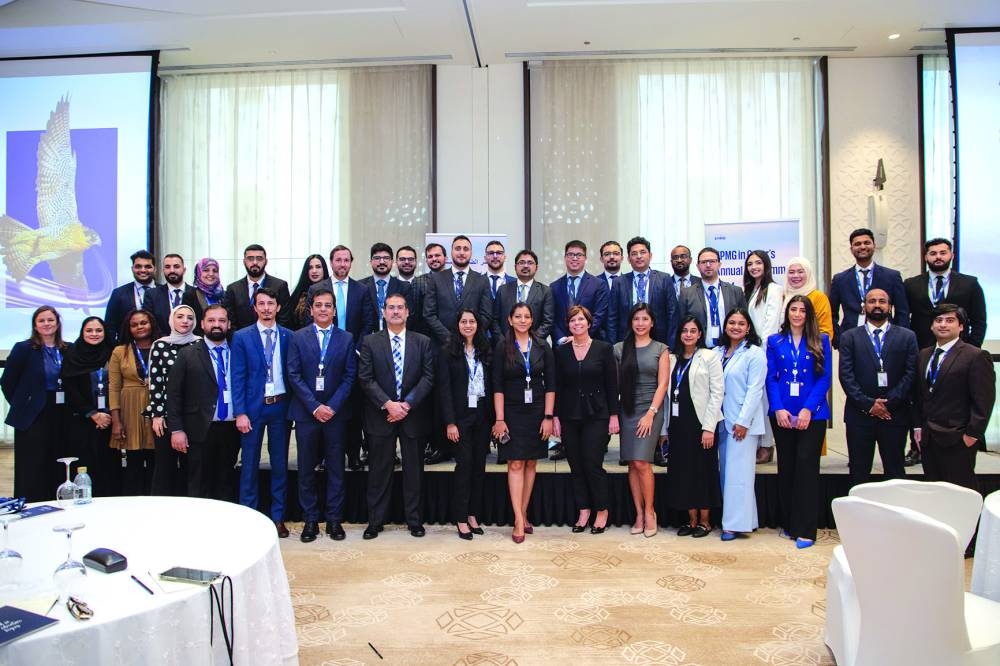KPMG in Qatar successfully hosted its Annual Tax Summit in Doha bringing together esteemed experts, clients, and industry specialists to delve into the imminent fiscal, tax, and regulatory changes shaping Qatar's business landscape.
The summit addressed pivotal aspects such as national and international tax updates, an overview of Qatar Free Zone, e-invoicing, as well tax assessment and litigation.
The engaging sessions aimed to equip businesses with the knowledge and strategies needed to navigate the evolving tax environment effectively.
The first of the speakers, Khalil Khbabez, tax manager at KPMG in Qatar, highlighted the changes and additions brought by the new tax law to the concept and rules of “Permanent Establishment” and how this can affect the way of operating and doing business in Qatar, mentioning, “The state's shift toward taxing foreign income sources underscores the need for companies to adapt their tax functions strategically."
Nouman Azam, tax manager at KPMG in Qatar, discussed the changes in tax residency criteria for individuals and legal persons followed by discussion on the Economic Substance Regulations (ESR) and the requirements to disclose Ultimate Beneficial Ownership (UBO).
The session concluded with a quick refresher on the Global Minimum Tax (BEPS 2.0 Pillar two rules) and the updates on recent developments of tax treaties between Qatar and other GCC / regional countries.
Imran Ayub, tax director at KPMG in Qatar, presented an overview of Qatar Free Zone (QFZ), highlighting, "The Qatar Free Zone presents exciting opportunities for businesses with benefits like 100% ownership and tax exemptions.” Ayub also provided insights into its tax implications and addressed pending clarifications from the QFZ Authority."
Barbara Henzen, partner and head (Tax) at KPMG in Qatar, highlighted that "VAT complexities demand early preparation, especially as Qatar eyes its introduction from January 1, 2025.” Henzen also explored the potential implementation of e-invoicing and gained insights from Asadullah Azmat, Director of KPMG Saudi Arabia, on the e-invoicing journey from Saudi Arabia and the lessons learned for their clients.
Haythem Zayed, tax partner at KPMG in Qatar, highlighted the developments and changing environments within the General Tax Authority (GTA).
Zayed also touched base on the tax assessment and its litigation cycle including the tax objection and the appeals process. He also shared insight into his experiences on the challenges that taxpayers may face during the tax assessments, objection, and appeal process and how to tackle such challenges.
Finally, Abhishek Jain, tax director at KPMG in Qatar, discussed the challenges faced by the key focus areas during the tax audits by the GTA as well as the challenges faced by taxpayers during their tax audits.
Jain further emphasised how taxpayers should prepare in advance to their tax audits to mitigate the potential risks.
Business
KPMG's Annual Tax Summit 2024 unveils key insights, strategies on Qatar's evolving tax landscape

The summit addressed pivotal aspects such as national and international tax updates, an overview of Qatar Free Zone, e-invoicing, as well tax assessment and litigation
